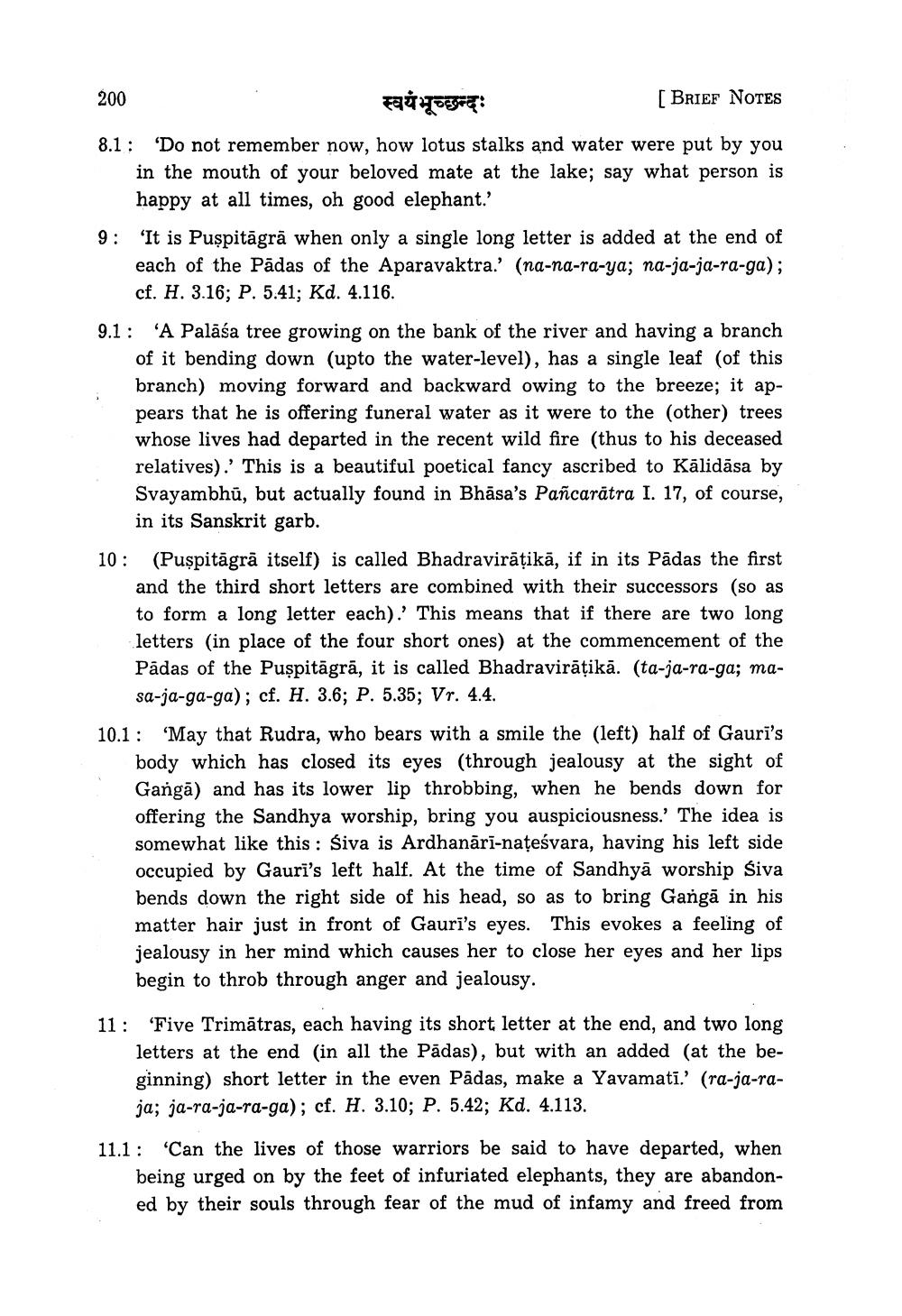________________
200
स्वयंभूच्छन्दः
[BRIEF NOTES
8.1: 'Do not remember now, how lotus stalks and water were put by you
in the mouth of your beloved mate at the lake; say what person is
happy at all times, oh good elephant.' 9: 'It is Puspitāgrā when only a single long letter is added at the end of
each of the Pādas of the Aparavaktra.' (na-na-ra-ya; na-ja-ja-ra-ga); cf. H. 3.16; P. 5.41; Kd. 4.116.
9.1 : 'A Palāśa tree growing on the bank of the river and having a branch
of it bending down (upto the water-level), has a single leaf (of this branch) moving forward and backward owing to the breeze; it appears that he is offering funeral water as it were to the (other) trees whose lives had departed in the recent wild fire (thus to his deceased relatives). This is a beautiful poetical fancy ascribed to Kālidāsa by Svayambhū, but actually found in Bhāsa's Pañcarātra I. 17, of course, in its Sanskrit garb.
10: (Puspitāgrā itself) is called Bhadravirätikā, if in its Pādas the first
and the third short letters are combined with their successors (so as to form a long letter each).' This means that if there are two long letters in place of the four short ones) at the commencement of the Padas of the Puşpitāgrā, it is called Bhadravirātikā. (ta-ja-ra-ga; masa-ja-ga-ga); cf. H. 3.6; P. 5.35; Vr. 4.4.
10.1: ‘May that Rudra, who bears with a smile the (left) half of Gauri's
body which has closed its eyes (through jealousy at the sight of Gangā) and has its lower lip throbbing, when he bends down for offering the Sandhya worship, bring you auspiciousness. The idea is somewhat like this: Siva is Ardhanārī-națeśvara, having his left side occupied by Gauri's left half. At the time of Sandhyā worship Siva bends down the right side of his head, so as to bring Gangā in his matter hair just in front of Gauri's eyes. This evokes a feeling of jealousy in her mind which causes her to close her eyes and her lips begin to throb through anger and jealousy.
11: “Five Trimātras, each having its short letter at the end, and two long
letters at the end in all the Pādas), but with an added (at the beginning) short letter in the even Pädas, make a Yavamatī.' (ra-ja-raja; ja-ra-ja-ra-ga); cf. H. 3.10; P. 5.42; Kd. 4.113.
11.1: 'Can the lives of those warriors be said to have departed, when
being urged on by the feet of infuriated elephants, they are abandoned by their souls through fear of the mud of infamy and freed from




